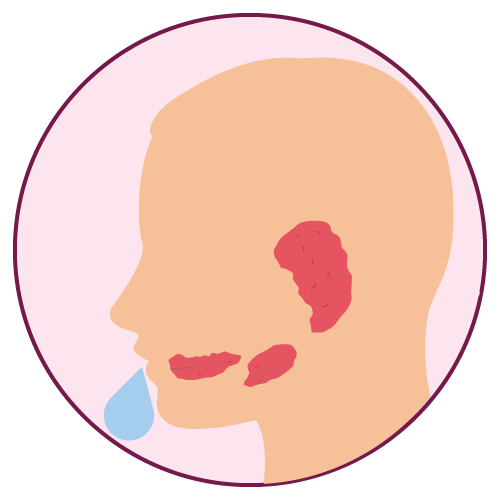| Name | Excessive salivation |

Excessive salivation
Excessive salivation, also known as sialorrhea or ptyalism, is a condition in which a person produces more saliva than is necessary for normal swallowing and digestion. This can result in drooling or dribbling of saliva. There are several causes of excessive salivation, including certain medical conditions, medications, and lifestyle factors.
Common medical causes include:
- Neurological conditions, such as Parkinson's disease, stroke, or nerve damage
- Infections, such as meningitis or encephalitis
- Gastrointestinal problems, such as acid reflux or GERD
- Dental issues, such as gum disease or dentures that don't fit properly
Certain medications can also cause excessive salivation as a side effect, including antidepressants, anticonvulsants, and antipsychotics.
Lifestyle factors that can contribute to excessive salivation include stress, anxiety, and tobacco use.
Treatment for excessive salivation depends on the underlying cause and may involve managing the underlying condition, adjusting medications, or using saliva-absorbing products such as saliva-absorbing pads. If the cause of excessive salivation cannot be treated, management of symptoms may include lifestyle changes, behavior therapy, or prescription medications to decrease saliva production.
Note: This is a general description. Please take professional health advice.
 Bangla
Bangla English
English